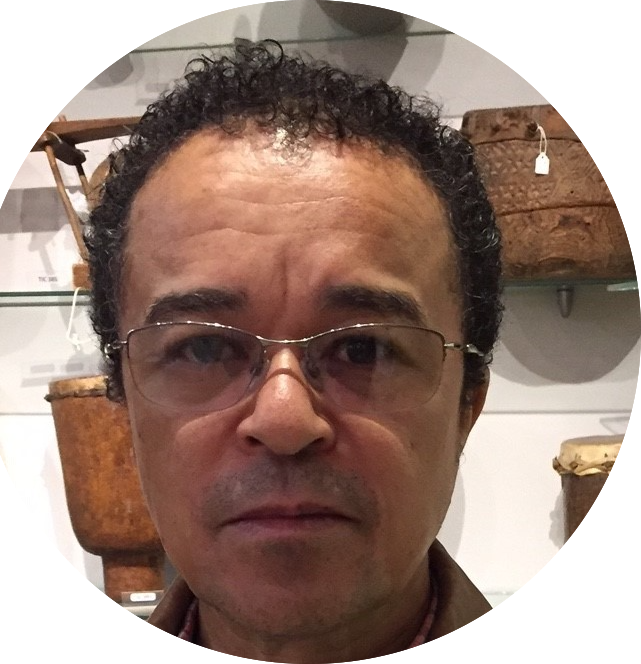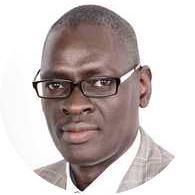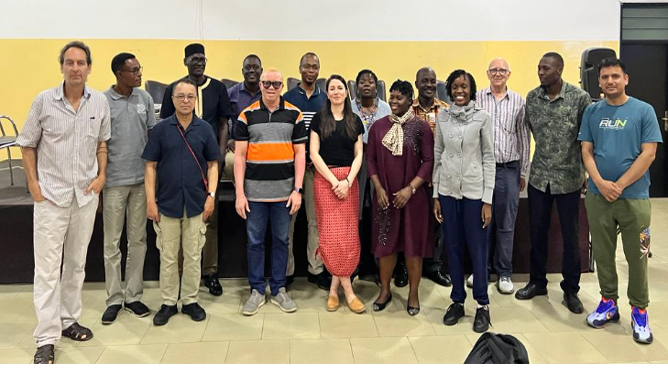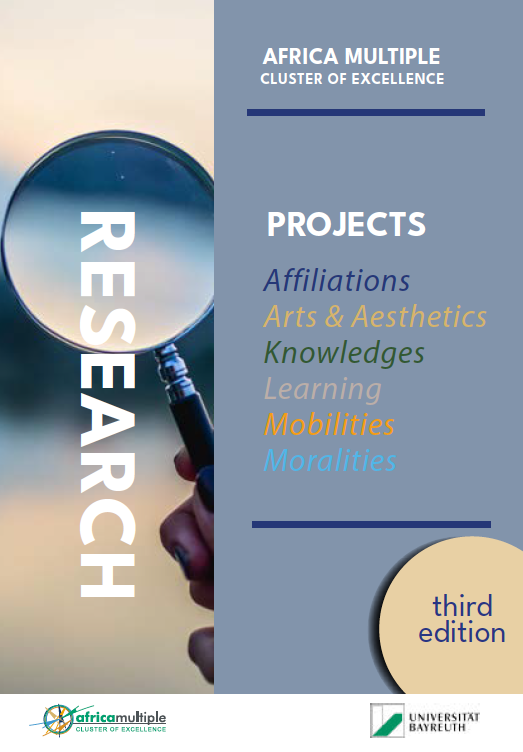Beyond the Digital Return: New Heritage/s, Sustainability, and the Decolonisation of Music Archives in South Africa, Kenya, and Ghana
-
Research Section: Arts and Aesthetics
-
Project duration: 01.01.2022 - 31.12.2025
Summary
Beyond the Digital Return researches repatriation/restitution and re/appropriation of submerged but now digitally accessible musical and cultural material. The significance of the relatedness of “digital return” to processes of heritage and identity production as well as the decolonisation of institutional music archives/repositories are investigated in three African countries: South Africa, Kenya, and Ghana, with affiliated research in Nigeria. The project contributes to Advocacy/Engaged/Applied Ethnomusicology, Archival Studies, Anthropology, African Heritage Studies, and Popular Music Studies. The project’s concerns are about assessing the value of digital return to the development of sustainable cultures and in what digital return reveals about global demands for decolonising archives and museums. Key questions are: what happens after the “digitised musical object” has been returned to its community of origin? Is digital return the answer to developing sustainable music cultures or reviving an interest in them where it may be the case that they are on the brink of collapse or extinction? The main objective of the project is to enhance our understanding of how repatriation in the field of music yields new forms of cultural creation associated with heritage, and, more precisely, intangible cultural heritage. This objective is informed by identity re/construction/ affirmation as a result of accessibility, current trends of decolonising archives and the opening up of music archives, collections, and digital repositories (where much digitization has been achieved). These processes have for decades been frustrated by notions of colonial and corporate authority and ownership. The project thus also aims to contribute to currently increasing debates on restitution and related rights issues such as ownership, copyright, and intellectual property rights.

The project team (from left to right): Moses Adjei, Kofi Labayili Kudonu, Markus Coester, Nicole Pooley, Jane Mwonga, Elijah Madiba, Tabitha Osoro, Tom Mboya, Lee Watkins, Daniel Avorgbedor.
Key Questions
Little scholarly attention has been paid to how archival materials are circulated, accessed, reappropriated, and used once they are ‘home,’ and become re/accessible. No empirical research has been conducted on the cultural effects of digital return and how it triggers new processes of musical and cultural production, is significant in remaking and sustaining group identities and heritage; and neither on its potential for decolonization of both society and archive. The subject has not been theorized, either, which our project seeks to do.
The project therefore investigates “digital return,” the practice of repatriation and reappropriation of submerged but now digitally accessible and mediated musical and cultural material/heritage (Lobley 2012, Coester 2012, Bell et al. 2013, Mojako 2016, Thram 2015/18, Gimenez 2018, Madiba 2019). It inquires on how these materials are circulated, accessed, and used once they have been returned and asks what new social and cultural relations and practices are produced when this music and its culturally- specific, re/mediated meanings, skills, memories, ideas, sounds, emotions, and performance styles it (used to) represent(s) become accessible. The project conceptualises the approach of “beyond repatriation” further and targets the significance of the relatedness of digital return to heritage and identity re/construction and the decolonisation of music archives/repositories in South Africa, Kenya, and Ghana.
In view of the above, our concerns are about assessing the value of digital archival return for sustaining cultures and in what it reveals about global demands for decolonising archives/museums.
Methods and Concepts
The project follows a decolonising research methodology that takes archives as cross-sections of control and contested knowledge and requires engagement with archives as cultural agents of “fact” production, taxonomies, and of colonial and corporate authority. Thus we view archives not as sites of knowledge retrieval, but of knowledge production, as monuments of colonialism and sites of colonial ethnography. Decolonizing archives means to decolonize knowledge (Mbembe 2015). To reduce the colonial subject-object disparity in traditional forms of research our methodology involves “participatory action research” (Impey 2002, Kemmis/McTaggart 2005) and what we term “collaborative action research” (CAR), a strong emphasis of collaboration and action in research practices (Coester, Mboya, Mwonga, Watkins forthcoming). The reimagined archive offers new “approaches, methods, attitudes and behaviours to enable people to share, enhance and analyse their knowledge of life and conditions and to plan, act and monitor, evaluate and reflect” (Chambers 2006). We will develop this theoretically and practically for our project: what is a sustained participatory action research (PAR and CAR) effort at digital return? One aspect of this is to share archival research (written/visual/aural) as well as data from expert interviews, discourse analysis, and close participant observation/action, which delineate our research methods, to create “shared knowledge” in the communities where we find ourselves.
Aiming at a decolonial research methodology (Watkins 2021) that involves ethnography, our key approaches are participatory action and collaborative action research. Apart from this we draw on methods and techniques and employ a new mix of (applied) ethnomusicological, anthropological, heritage studies, and popular music/culture studies research methods as we combines archival and ethnographic research.
Vision
Decolonisation, open access, effective research management, and sustenance of music heritage repositories; the merger of creative communities and such repositories; and creative industries/music industries to create recognition of subaltern, alternative and unauthorised heritages:
- Policies and frameworks for “replay activities” of popular and meaningful music of the past by governments, heritage industries and brokers
- Merger of sustenance and improvement of frameworks within societies to change status of creative artists and improve living conditions of musicians and other creative artists
- Digital return to benefit subaltern, creative communities to rewrite histories, reimagining past futures and re/create heritage; creation and sustenance of (digital) community archives
- To fully tap and make useful the relationship of digital return/repatriation/restitution for decolonial indentities and heritage politics
- Effective music and intangible heritage rights management (Copyright and IPR) on the African continent, effective Copyright for so-called traditional music and folk music
- Decolonising learning and (participatory) research through open access digital cultural and musical learning
Contribution to the Cluster’s Aims & Goals
The project contributes to the cluster and its research section Arts & Aesthetics as it is a reflection and scholarly investigation not only on the significant cultural role of music/ digitisation/archive but also, as a consequence of it, the relatively new field of research on “alternative heritage-making” in Africa, in relation to the re-invigoration of heterogeneous identities. This idea has been increasingly significant. We explore how this is related to aesthetic processes, practices, and politics challenging (neo-)colonial and national constellations of power through digital return and the decolonisation of music archives. Moreover, the project is concerned with cultural and musical learning through digital open access. It thereby contributes to exploring the field of musical learning and heritage through decolonising practices such as participatory research and learning.
The project foregrounds an emerging, new multiplicity in Africa: that of heritage/s, related to subaltern heritage politics and re/affirmation of “ethnicities”, and points to aspects of its dynamics. Our focus on new heritages in the plural reflects the increasing multiplicity of life worlds. Once considered an all-encompassing cultural formation/essence representing dominant narratives of the past, intangible heritage-making of subaltern groups points to “other pasts which count” (Hall 2005). Such “alternative heritage-making” and the related multi-“ethnicity” constitution of societies, a key variable in Africa, reveal group power asymmetries and claims of “ethnic” equality. Apart from class and gender inequality, these may by the main challenge for democratization and sustaining nation states. The project will thus contribute to the cluster’s aspiration of understanding African multiplicities, their dynamics, and, as these new trends are constituted multi-lingually and multi-culturally, their relationality. The project seeks to contribute to the third important concept of the cluster in reconfiguring African Studies, that of reflexivity, as the digital return is investigated as a processual relation between archives, scholars, artists, and communities, and evokes and emphasises the reflexive character of relations. Digital return feeds back into the context/the archive/its practices from which it evolved. By investigating this process and the new relations digital music returns and reappropriations produce, the project argues that African life worlds, cultural practices and identities have been relational, multi-layered, and heterogeneous, and are “under reconstruction” in the post-colonial and digital worlds. We explore digital archival return, heritage and identity re/construction through relationality and re/mediation, produced through music-archive/music-making/”musicking” practices, in multi-local African spaces and at the “moment of agency,” and how people relate to this remediated archive. We engage in this way with the four heuristic angles of the Cluster.
Ethnomusicology has been (colonially) structured by collecting/researching and archiving/ exploiting for either fetish or scholarly use. The project is concerned with processes of decolonisation and learning through digital open access. Like the turn to repatriation, its methodology of PAR and CAR contributes to reconfiguring African Studies, as does its engagement with music, and popular music, the most enjoyed on the continent, and equally the most unvalued and understudied in African Studies and Ethnomusicology (Agawu 2016).
The project promotes doctoral researchers from/in Africa, and fosters interdisciplinary research across four ACCs and with academic partners at the University of Ghana, another key institution of higher learning in West Africa.
Project Team

Dr Lee Watkins
International Library of African Music
Rhodes University, South Africa

Prof. Dr Tom M. Mboya
Department of Literature, Linguistics, Foreign Languages and Film Studies
Moi University, Kenya

Dr Habil. Markus Coester
Anthropology/ Anthropology of Music
University of Bayreuth
Project directors
- Dr. Lee Watkins, International Library of African Music, Rhodes University, South Africa
- Prof. Tom M. Mboya, Department of Literature, Linguistics, Foreign Languages and Film Studies, Moi University, Kenya
- Dr. habil. Markus Coester, Anthropology/Anthropology of Music, University of Bayreuth, Germany
Research team
- Prof. Daniel Kodzo Avorgbedor, African Studies/Ethnomusicology, University of Ghana
- Dr. Jane Mwonga, Ethnomusicology, Department of Literature, Linguistics, Foreign Languages and Film Studies, Moi University, Eldoret, Kenya
- Dr. Albert Oikelome, Ethnomusicology, Head of Department of Creative Arts, UNILAG, Nigeria
- Elijah Madiba, M.Mus., Ethnomusicology, ILAM, Rhodes University, South Africa
- Nicole Pooley, M.Mus., doctoral researcher in the project, ILAM, Rhodes University, South Africa
- Kofi Kudonu Labayili, M.A., doctoral researcher in the project, Department of Music, University of Ghana
- Fidelia Tseyi Ametewee, M.A., doctoral researcher in the project, African Studies/Heritage Studies, University of Ghana
- Moses Adjei, M.A., doctoral researcher in the project, Ethnomusicology, University of Ghana
- Tabitha Osoro, M.MEd., doctoral researcher in the project, Moi University, Eldoret, Kenya
Project title
Beyond the Digital Return: New Heritage/s, Sustainability, and the Decolonisation of Music Archives in South Africa, Kenya, and Ghana
Project duration
4 years (2022-2025)
Project directors
- Dr. Lee Watkins, ILAM, International Library of African Music, Rhodes University, South Africa
- Prof. Tom M. Mboya, Department of Literature, Linguistics, Foreign Languages and Film Studies, Moi University, Kenya
- Dr. habil. Markus Coester, Anthropology/Anthropology of Music, University of Bayreuth, Germany
Beyond the Digital Return researches the practice of repatriation/restitution and re/appropriation of submerged but now digitally accessible musical and cultural material. The significance of the relatedness of “digital return” to processes of heritage and identity production as well as the decolonisation of institutional music archives/repositories are investigated in three African countries: South Africa, Kenya, and Ghana, with affiliated research also in Nigeria.
The project’s concerns are about assessing the value of digital return to the development of sustainable cultures and in what digital return reveals about global demands for decolonising archives and museums. Key questions are: what happens after the “digitised musical object” has been returned to its community of origin? Is digital return the answer to developing sustainable music cultures or reviving an interest in them where it may be the case that they are on the brink of collapse or extinction?
The main objective of the project is to enhance our understanding of how repatriation in the field of music yields new forms of cultural creation associated with heritage and, more precisely, intangible cultural heritage.This objective is informed by identity re/construction/affirmation as a result of accessibility, current trends of decolonising archives and the opening up of music archives, collections, and digital repositories (where much digitization has been achieved). These processes have for decades been frustrated by notions of colonial and corporate authority and ownership. The project thus also aims to contribute to currently increasing debates on restitution and related rights issues such as ownership, copyright, and intellectual property rights.
Research team
- Prof. Daniel Kodzo Avorgbedor, African Studies/Ethnomusicology, University of Ghana
- Dr. Jane Mwonga, Ethnomusicology, School of Arts and Social Sciences, Moi University, Eldoret, Kenya
- Dr. Albert Oikelome, Ethnomusicology, Head of Department of Creative Arts, UNILAG, Nigeria
- Elijah Madiba, M.Mus, Ethnomusicology, ILAM, Rhodes University, South Africa
- Kofi Kudonu Labayili, M.A., Department of Music, University of Ghana
- Nicole Pooley, M.Mus, doctoral researcher in the project, ILAM, Rhodes University, South Africa
- Fidelia Tseyi Ametewee, M.A., doctoral researcher in the project, African Studies, University of Ghana
- Moses Adjei, M.A. doctoral researcher in the project, Ethnomusicology, University of Ghana
-
Tabitha Osoro, M.Med, doctoral researcher in the project, Moi University, Eldoret, Kenya

The project team (from left to right): Moses Adjei, Kofi Labayili Kudonu, Markus Coester, Nicole Pooley, Jane Mwonga, Elijah Madiba, Tabitha Osoro, Tom Mboya, Lee Watkins, Daniel Avorgbedor.
Research Team Meeting, 22 – 24 August 2022, Rhodes University, Makhanda, South Africa
In August ‘22 we had our first ‘physical’ team meeting hosted by the International Library of African Music (ILAM) at Rhodes University. Except for Albert Oikelome, who unfortunately could not attend, all project members got to know each other in person and participated in an intense, productive, and memorable meeting on our research subject.
The first day began with an opening address by Dr. Lee Watkins followed by a brief introduction of each team member and their research interests. The rest of the day was dedicated to presentations by doctoral students on their current research topics and ideas with important discussions, suggestions and comments following each presentation. Concluding the first day was a tour of ILAM by its manager and sound engineer, Elijah Madiba.
The second day was dedicated to the presentation of research interests pertaining to the project by its directors and research team. Fruitful discussion took place during and after each presentation with complex topics and keywords coming to the fore. The team also attended a dedicated performance by Ugandan master court musician, Albert Ssempeke, a Masters student and African ensemble performance teacher at Rhodes University.
On the third and final day, Wynand van der Walt, Senior Manager of Innovation at the Rhodes University’s Main Library, gave a presentation on information systems at the university as it applies to the Africa Multiple Cluster of Excellence. Following this, the team completed discussions ensuing from the previous two days and decided on future meetings and dates. To wrap up the three-day meeting, the team attended a historical tour of Makhanda and some of its cultural institutions by a local tour guide (report draft prepared by Nicole Pooley).
Our next meeting in person is due to take place at the University of Ghana in July 2023. This will be a five-day meeting including workshops with performers, scholars and cultural experts and will lead into the ICTM World Conference on 13 – 19 July 2023 hosted by the University of Ghana, Legon, with our team member Prof. Daniel Avorgbedor as main local organizer. At ICTM we will present our project and research with a panel as well as individual papers. Looking forward to seeing you there!

From left to right: Markus Coester, Moses Adjetey, Lee Watkins, Tom Mboya, Bright Aheto, Kofi Kudonu, Elijah Madiba, Nicole Pooley, Jane Mwonga, Grace Olaoluwa, Albert Oikelome, Tabitha Osoro, Antony Seeger, Isaa Mahama, Rakesh Kumar.
Beyond the Digital Return -Workshop, “New Heritage/s”, 11th – 12th July 2023, University of Ghana
Beyond the Digital Return:New Heritage/s, Sustainability, and the Decolonisation of Music Archives in South Africa, Kenya, and Ghana
On 11 July, the Beyond the Digital Return research team and invited guests met at the J.K. Nketia Archives at the University of Ghana for the opening session of our “New Heritage/s” workshop: “Digitization, Repatriation, Safeguarding – technical and ethical aspects & the audiovisual-digitization training initiative,” a session in collaboration with the Nketia Archives to promote our shared interest in this field. Among the invited scholars were Prof Tony Seeger, Dr Grace Olaoluwa (UNILAG), and Judith Opoku-Boateng (Nketia Archives). After this we went to the main workshop venue, the Reginald Amonoo Auditorium at the Modern Languages Department’s Maison Francaise for the rest of the programme. The second session, “Music as Living Heritage & Gendered Heritage-Making: Reconstructing Popular Music”, was chaired by Dr Grace Olaoluwa and focused on the comparatively new attention to Gender, heritage, and popular music. This was followed by a round table titled, “Digital/Music Repositories, Heritage Industries, Management & Rights Issues (Copyright/IPR),” chaired by Dr Markus Coester, raising questions on the relationship of digitally accessible and distributed repositories, heritage commodification, and rights. The third session titled, “Music/Archives as Decolonial Spaces – Concepts of Transformation”, was chaired by Dr Lee Watkins and provided insights into the new role archives can and should play and the changes required for this. The fourth session was on “Benga Heritage” in Kenya and chaired by Prof Tom Mboya. The session emphasised the cultural legacy of Benga in Kenya, and involved a conversation via zoom with the director and producer of Equator Heritage Sounds, Mr Matthews Juma in Kenya on his work from the 1990s through the 2010s in revitalising Benga music.
The second day of the Workshop started with presentations of the doctoral students in the project team on their “research in progress.” We discussed our individual research projects with each other. Moreover, this session enabled students to receive feedback from fellow team members and invited scholars and resource persons, including Prof Anthony Seeger. The second session, chaired by Dr Albert Oikelome, focused on global trends with respect to intangible heritages, and on the efforts/process in Ghana to have Highlife music enlisted as intangible cultural heritage of the world by UNESCO. We were happy to have a highly informative session involving Mr Abdourahamane Diallo, the UNESCO Representative to Ghana as well as Prof John Collins and Dr Markus Coester, both long-time researchers on Highlife. Interestingly, the regional perspective on Highlife was brought in by Dr Oikelome, who is from Nigeria, that Highlife is also their intangible heritage. The final session was titled, “New Perspectives on In/Tangible Cultural Heritage and New Approaches to Musical Repatriation, Documentation, Safeguarding, and Training from “the South.” It featured a talk by Prof Shubha Chaudhuri as guest speaker via zoom on an exemplary project in India on archival returns, training, and revitalisation of important but endangered and less practiced musical traditions.
The workshop provided a great opportunity for the project team to interact, share experiences and progress in their respective countries. The team attended the ICTM conference from 13-19 July and presented a panel on the project. Our next meeting is due to take place at Moi University, Kenya in August 2024. We look forward to a workshop geared towards the conceptualisation and sustainability of Benga heritage (prepared by Tabitha Osoro, Markus Coester, and Lee Watkins).


